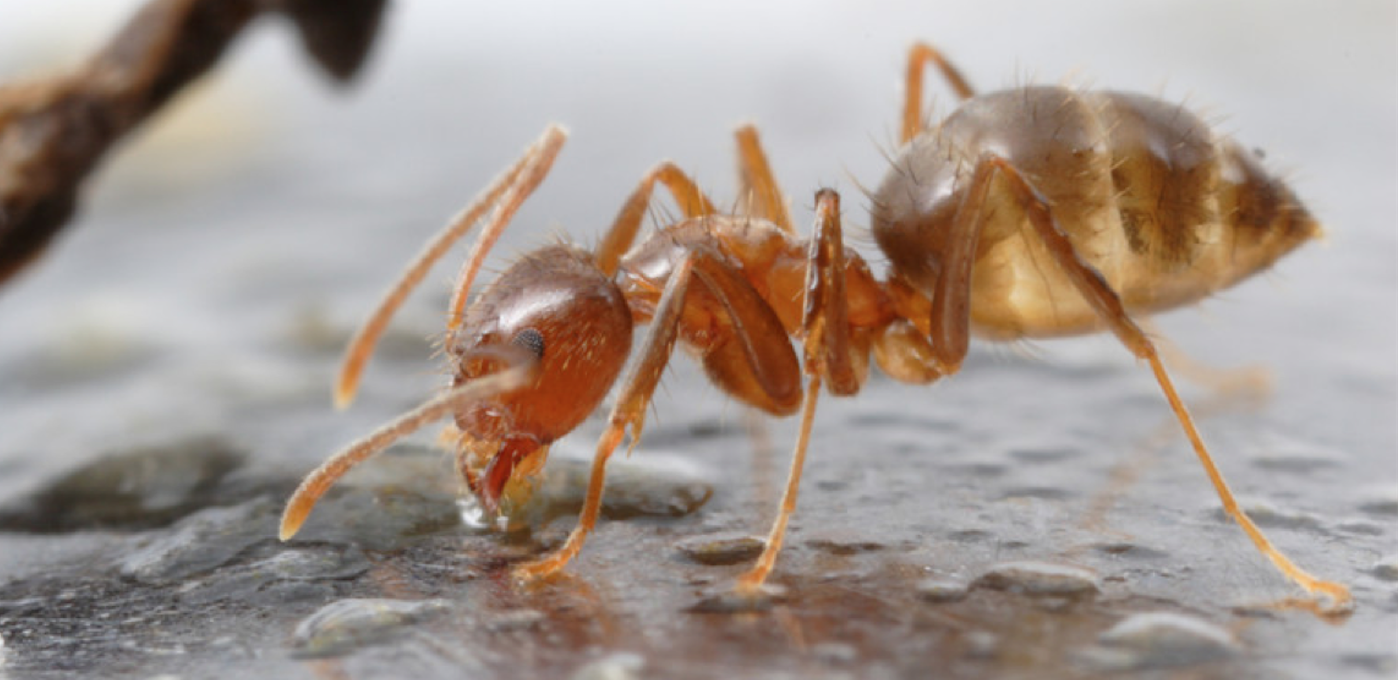Scientists have succeeded in creating a natural antidote to an invasive ant species and a study from the University of Texas at Austin was published Monday, March 28, by the American Academy of Sciences.
Professor Edward LeBrun, said the fungus has already led to the extinction of pockets of ants and will be tested this spring in sensitive environments in Texas to protect endangered species.
This species of ants, which is called the tawny crazy ants (Nylanderia fulva, and sometimes called “Rasberry crazy ants”, named for their erratic movements, come from Argentina and Brazil and were introduced to the United States by boat.
They are extremely dangerous ants because they have driven out another invasive species of ants, known as “fire ants” because of their venom, which causes painful stings, and attacks animals – scorpions, snakes, lizards, birds – by secreting a formic acid that also protects them from the venom of their cousins.
“It’s a horror show,” says Edward LeBrun, describing rivers of ants colonizing trees in an area of Estero Llano Grande Park in Texas where local wildlife has disappeared.
These ants are capable of destroying ecosystems but are also “a nuisance” to humans, the scientist said. The ants colonize electrical systems, blowing up meters, air conditioners and pumps.
Highly toxic pesticides are able to fight them but only slow their progress and leave mountains of dead ants that must then be removed.
In 2014, Professor Edward LeBrun and one of the study’s co-authors Rob Plowes discovered that dead ants recovered in Florida had stomachs abnormally swollen with fat.
This study and analysis revealed the presence of spores of a previously unknown species of microsporidia, a type of fungal pathogen.
Microsporidia typically invade the fat cells of insects, turning them into spore-making factories.
Where this pathogen comes from and its origin is not clear: perhaps South America or another insect.
However, it is spreading in Texas. Of the 15 colonies studied over eight years, every population declined when the pathogen was detected, and 60% of these colonies died.
In the experiments, researchers introduced ants infected with the pathogen into an uninfected colony in a protected area, placing a hot dog so the two groups would mix.
This species of ants, the “crazy ants”, live in “supercolonies” where the groups do not fight for territory. This is a huge advantage for colonizing new areas, but also their greatest weakness, allowing the pathogen to spread freely.
The first experiments were successful, leading to the extinction of the population of this colony in a few years. The larvae contaminated by infected worker ants were particularly fragile.
As far as Edward LeBrun is concerned, there are two pieces of good news: a naturally occurring pathogen specifically targets invasive species, limiting their ability to invade an ecosystem, and scientists can accelerate the spread of this pathogen to finish off the tawny crazy ants faster.
But this process will take time, and the ants won’t disappear overnight, the researcher points out.



Comment here